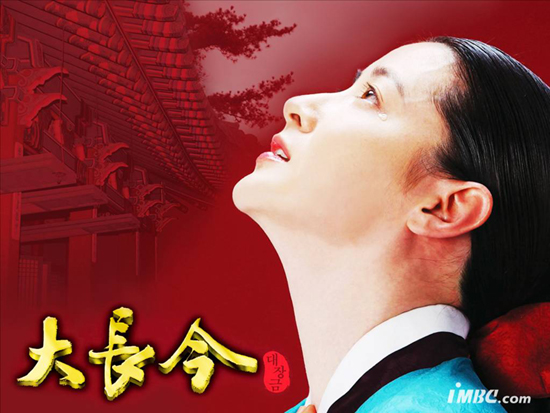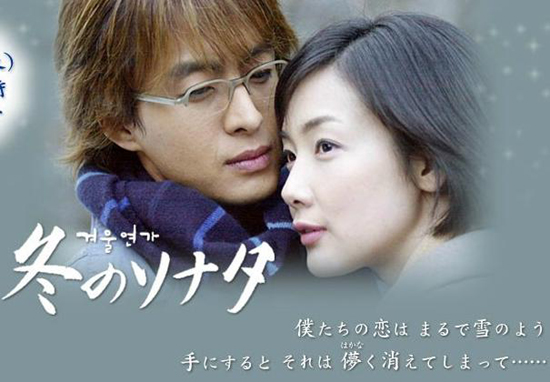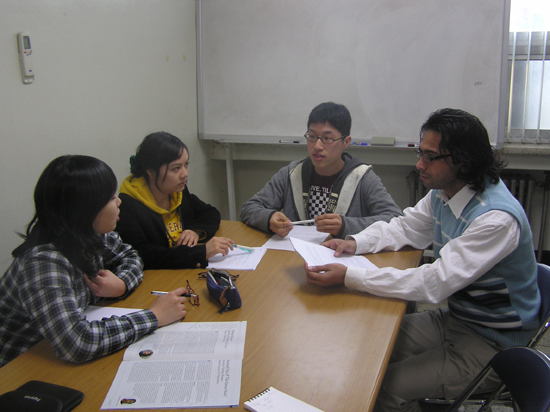<#275 Global Lounge>
Hallyu, the Korean wave, has spread like a wild fever across Asian countries. Many Asians enjoy Korean popular culture such as TV dramas and movies and some Korean entertainers have many fans in China and Japan. In this issue, Chonnam Tribune deals with this subject, which was discussed by one Korean student and three foreign students from China, Japan and India. They had a talk about the Hallyu Fever on Feb. 20. -Ed.
Introduction
Hallyu fever started with the exportation of Korean TV dramas and music to neighboring countries like China, Japan and Vietnam. Korean popular culture is finding unprecedented acceptance, especially since 2000. It appears that there are pros and cons on this subject.

Some people think of Hallyu in a negative way. From their viewpoint, it is merely a commercial product and a temporary phenomenon led by several celebrities in the entertainment field. While others have a positive view of Hallyu in that it has gained popularity because Asian people have similar socio-cultural experiences and it has certain elements to suit their cultural taste.
In any case, Korea should discuss the question of what will happen in the future and make proper preparations in order to continue generating the Hallyu effect. Let’s hear the opinions of foreign students on the Hallyu.
Kim Yo-an (Korea): I think all of you might know the popularity of Hallyu among Asian people. Let's talk about the Hallyu. At first, have you ever heard of it?
Lee Naseo (Japan): Of course. It is very popular in Japan. Actually, I'm so pleased that Korean media contents have become more popular in my country and the national image of Korea is getting better. But most Japanese have never been interested in the history of Korea or historical relations between Korea and Japan.
Rana (India): Actually, most Indians know nothing of Korean movies or dramas. Even though companies like Samsung and LG are very famous in India and we can readily see industrial products made in Korea, Korean popular culture is not accessible to Indians. I had not heard of Hallyu in my country, India, but I know the Hallyu fever has spread across other countries.

Fuqin (China): I think it already became popular in China a few years ago. Like dramas, movies and songs, you know, more and more young students are crazy for Korean media contents. Korean styled fashion, make-up and jewelry also have prevailed among young Chinese.
Kim Yo-an: Could you tell us the main difference between Korean and Chinese dramas and movies?
Fuqin: There are a lot of differences. First, Korean dramas almost always have a story line that centers on a love story, but Chinese ones are about history, war, friendship and love. Second, the length of Korean dramas is shorter than Chinese ones. Third, the leading actors and actresses of Korean dramas are more beautiful and handsome than their Chinese counterparts. I think it seems to be reflecting Koreans’ tendency to improve their physical appearance. I couldn’t find that in China.
Kim Yo-an: I suppose that Korean culture, as you have experienced in Korea, is different from Hallyu in your countries. Are there differences between them?
Lee Naseo: In Japan, generally old women enjoy Korean dramas and stars and cut out magazine articles about them. They also like to go shopping to buy Korean products. Nowadays, many Japanese have a refreshed positive view of Korea. But they are just interested in the Korean entertainment market. They don’t care about all relations between Korea and Japan, like historical ones. When I came to Korea, I surprisingly found that Koreans have interest in the historical relation between the two countries.
Kim Yo-an: What do you think about the influence of "Hallyu" on Asian countries?
Lee Naseo: I think the national image of Korea has become much better than several years ago. Many Japanese weren't interested in Korea before. They were just interested in English speaking countries such as USA, Australia and England. But nowadays, many Japanese want to learn Korean.
Fuqin: "Hallyu" has changed the national image of Korea in China. As a result, many Chinese also want to know about Korea, its culture and learn its language. Thanks to the popularity of Korean culture, Korea’s image in Asian countries becomes more positive.
Kim Yo-an: I heard that certain "anti-Korea" phenomenon has appeared across Southeast Asia these days. Especially in Japan, a cartoon describes Korean president Roh Moo-hyun like an idiot or jerk. What do you think of it?
Lee Naseo: I think it is related to the historical problems which have not been solved between Korea and Japan. In my opinion, anti-Hallyu it seems is limited to specific persons like a politicians, etc.
Fuqin: Some people worry that Hallyu has been accepted thoughtlessly by the younger generation who actually have a tendency to follow appearances. Especially, people who work in the entertainment industry think Hallyu eliminate their positions and that the Chinese will not retain their own culture and national identity.
Conclusion
This reporter has come to know foreign students’ thoughts about Hallyu through this discussion. According to their opinions, the younger generations in Asian countries are attracted to Korean popular culture or Hallyu.
However, as certain experts advise, the cultural power of Hallyu will dwindle as long as we regard Hallyu as a means of money making and depend on a few celebrities to maintain it. This attitude may arouse anti-Hallyu sentiments in other countries, that is to say, they would no longer import our cultural products in the future.
Therefore, we should focus just on not spreading existing contents of Hallyu to other countries but also on understanding every culture and cooperating with their respective cultural industries. Additionally, we should also develop and produce new content to make "Hallyu" a national brand. Then, Hallyu will persist for a long time and Korea will become a hub of Asian culture.
Four students were participated in the debate.

Rana Mukesh Kumar, Guest Reporter, Ph.D. student, Graduate School of Economics
Fuqin, Guest Reporter, M.A. student, Dept. of Communication
Lee Naseo, Interchange student, Dept. of Japanese Language and Literature
Kim Yo-an, Senior, Dept. of English Education

